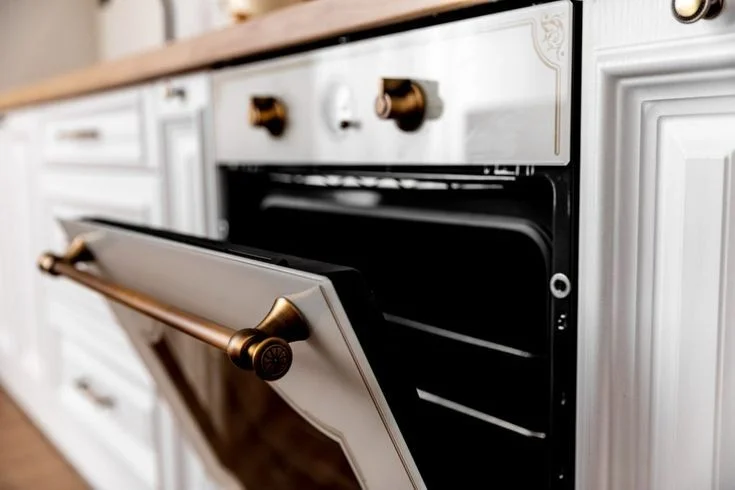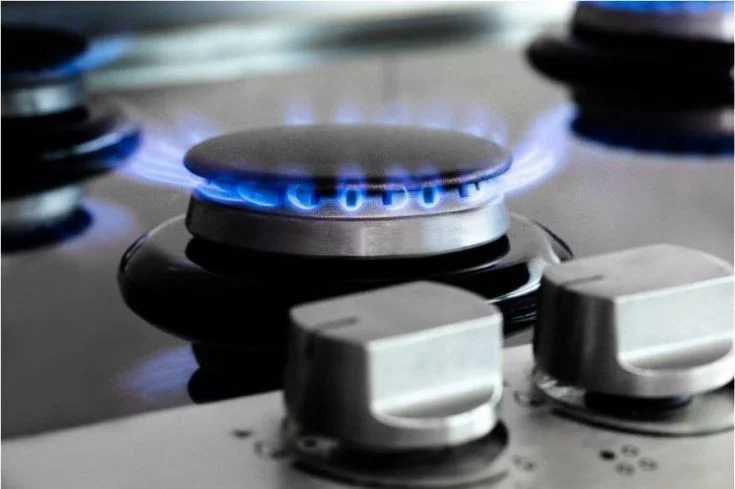A gas smell coming from your oven can be alarming and raises valid safety concerns. Whether it occurs during preheating or regular use, it’s essential to address the issue immediately to protect yourself and your household. This guide will explain why your oven smells like gas, the potential risks, and how to identify and resolve the problem safely.
Why does my oven smell like gas?
Understanding the causes behind a gas smell can help determine whether the issue is normal or requires urgent attention.
1. Ignition delay during preheating
When a gas oven starts, the burner releases gas before igniting. If ignition is delayed, you might briefly smell gas. While this is common, the smell should dissipate quickly once the burner is lit.
2. Gas leaks from connections or seals
A damaged or loose connection in the gas line, valve, or seal can result in a persistent gas smell. This is a serious issue requiring immediate attention.
3. Residual gas buildup
If the oven wasn’t turned off properly after its last use, residual gas might linger, leading to a noticeable smell when the appliance is turned on again.
4. Issues with the pilot light or burner
For older ovens with a pilot light, a malfunction can cause unburned gas to escape. Similarly, clogged or faulty burners may release gas without proper combustion.

Normal vs. Problematic smells
A faint gas-like smell during the initial preheat cycle is often normal, but persistent or strong odors indicate a problem. If you’re unsure, it’s always better to err on the side of caution and investigate further.
Immediate steps to take
If you notice a strong gas smell, it’s crucial to act quickly and prioritize safety.
1. Turn off the oven and gas supply
- Immediately turn off the oven and ensure the gas supply to the appliance is shut off.
- Locate the gas shut-off valve near the oven or in your home’s main gas line.
2. Ventilate the area
- Open windows and doors to allow fresh air to circulate and disperse the gas.
- Avoid using exhaust fans, as electrical appliances can create sparks.
3. Avoid ignition sources
- Do not light matches, candles, or other open flames.
- Refrain from using electrical switches or devices, as they may cause sparks.
4. Inspect for visible issues
- Check the burner to ensure it’s fully lit and functioning.
- Look for visible damage or disconnections in the gas line or seals.
5. Call a professional or gas provider
- If the smell persists or you suspect a gas leak, contact your gas provider or a licensed technician immediately.
- Evacuate the home if the odor is strong or you feel unsafe.
Preventive maintenance tips
Preventing gas-related issues starts with regular maintenance and safe usage practices.
1. Inspect gas connections and seals
- Periodically check gas connections, hoses, and seals for signs of wear, cracks, or looseness.
- Replace any damaged components promptly.
2. Keep burners clean
- Regularly clean the burners to remove grease, food debris, or other blockages that might affect ignition.
- A clean burner ensures efficient combustion and minimizes gas buildup.
3. Follow proper procedures
- Always follow the manufacturer’s instructions for lighting and shutting off your oven.
- Avoid leaving the oven on unnecessarily or unattended.
4. Schedule professional maintenance
- Arrange annual maintenance with a certified technician to inspect the appliance and ensure it’s functioning safely and efficiently.

Conclusion
If your oven smells like gas, it’s essential to address the issue promptly to ensure your safety and peace of mind. While some gas odors are normal during preheating, persistent smells can indicate a leak or malfunction.
By following the steps outlined in this guide—turning off the gas, ventilating the area, and seeking professional help when needed—you can minimize risks and resolve the issue effectively. Preventive maintenance and proper use will also help you avoid similar problems in the future.
If you’re ever in doubt, don’t hesitate to contact a professional technician or your gas provider. Safety always comes first!




